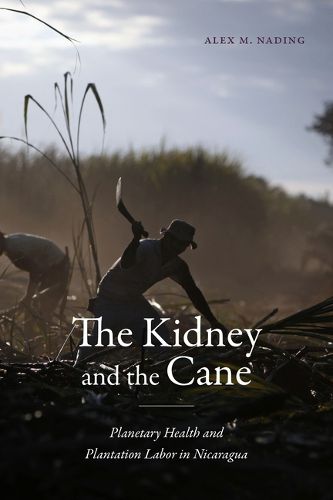Readings Newsletter
Become a Readings Member to make your shopping experience even easier.
Sign in or sign up for free!
You’re not far away from qualifying for FREE standard shipping within Australia
You’ve qualified for FREE standard shipping within Australia
The cart is loading…






The recent unprecedented growth of Nicaragua's sugarcane industry has brought promises of more jobs, better healthcare, and cleaner energy. But these promises have been overshadowed by an epidemic of chronic kidney disease of non-traditional causes (CKDnt). Unknown before the late 1990s, this disease has sickened and killed thousands of sugarcane plantation workers. Scientific studies link the disease to rises in mean average annual temperatures, chronic water scarcity, and the overuse of toxic agrochemicals. CKDnt is now understood as a consequence of global climate change. In The Kidney and the Cane, Alex M. Nading situates this epidemic within a deeper history of sugarcane plantation violence, arguing that CKDnt is not a result of climate change, it is climate change. Outlining a place-based approach to planetary health, Nading follows activists, scientists, and sugarcane zone residents wrestling with the consequences of plantation life. Along the way, he raises critical questions about the capacity of corporations and states to care for people and ecosystems; the ability of citizens and experts to regulate toxic substances; and the future of work on a warming planet.
$9.00 standard shipping within Australia
FREE standard shipping within Australia for orders over $100.00
Express & International shipping calculated at checkout
The recent unprecedented growth of Nicaragua's sugarcane industry has brought promises of more jobs, better healthcare, and cleaner energy. But these promises have been overshadowed by an epidemic of chronic kidney disease of non-traditional causes (CKDnt). Unknown before the late 1990s, this disease has sickened and killed thousands of sugarcane plantation workers. Scientific studies link the disease to rises in mean average annual temperatures, chronic water scarcity, and the overuse of toxic agrochemicals. CKDnt is now understood as a consequence of global climate change. In The Kidney and the Cane, Alex M. Nading situates this epidemic within a deeper history of sugarcane plantation violence, arguing that CKDnt is not a result of climate change, it is climate change. Outlining a place-based approach to planetary health, Nading follows activists, scientists, and sugarcane zone residents wrestling with the consequences of plantation life. Along the way, he raises critical questions about the capacity of corporations and states to care for people and ecosystems; the ability of citizens and experts to regulate toxic substances; and the future of work on a warming planet.